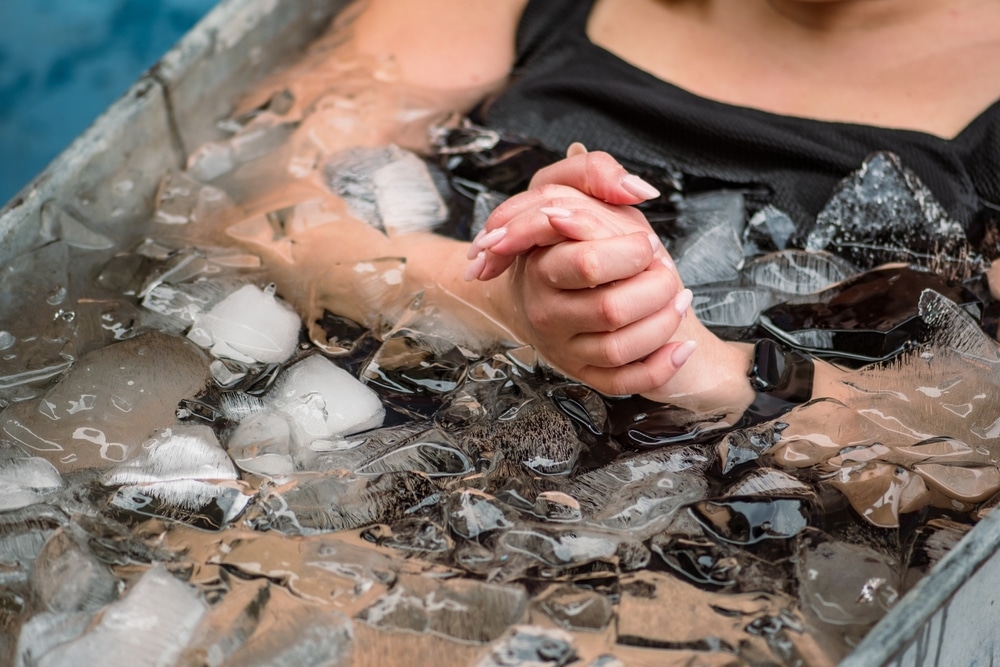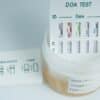Unleashing The Power Of Ice Baths And Nutrition For Optimal Well-Being
Completing a triathlon is no small feat; it’s a culmination of grit, determination, and countless hours of training. After crossing the finish line, your body has been through a whirlwind of intense physical exertion. While you might be itching to celebrate this monumental achievement, it is crucial to prioritize recovery so that your body can heal and build strength for future competitions. So, what does a smart, effective triathlon recovery routine look like? Here are seven tips that foster a holistic approach to healing and help you regain your energy and enthusiasm.
Jumping into an ice bath might not be the first thing on your mind after the race, especially when the thought of a relaxing soak sounds appealing. But here’s the catch: cold water immersion is your secret weapon for recovery. As tempting as a hot bath is, taking an ice bath after your triathlon can significantly reduce inflammation and minimize tissue damage. This process helps clear lactic acid from your muscles—essential for easing soreness. Aim to spend at least 10 minutes, but no more than 20, to reap the most benefits, keeping in mind your comfort and experience with cold temperatures.
Once you’ve invigorated your muscles with cold water, it’s time to refuel your body. Think of your post-race meal as a reward for your hard work—something delicious and satisfying. After the exertion of swimming, cycling, and running, your muscles are hungry for protein and carbohydrates to restore energy and muscles. You might start with something like a classic peanut butter and jelly sandwich, which perfectly balances carbs, sugar, protein, and healthy fats. When you’re ready for a more substantial meal, look to wholesome options like grilled chicken, sweet potatoes, and colorful veggies to give your body the nutrients it craves.
Hydration is another critical component of recovery often overlooked. During your race, you likely lost a significant amount of water through sweat and exertion. Post-race, it’s vital to replenish those lost fluids. To gauge how much water you need, weigh yourself before and after the race, and drink two cups of water for every pound lost. But don’t go overboard—too much water can lead to hyponatremia, a dangerous condition caused by overly diluted sodium levels in your bloodstream. Keep an eye on your hydration by monitoring the color of your urine: pale yellow is optimal!
When it comes to recovery, understanding that your body needs time to heal is key. The length and intensity of your triathlon largely dictate how much downtime you should allow yourself. If you’ve raced a shorter distance, take three days off from any strenuous training; gradually introduce light workouts afterward to ease back in. For more intense races, like an Ironman 70.3, you might require four to five days of rest, followed by up to three weeks of gentle exercise. Patience during this phase is essential—instead of jumping right back into rigorous regimens, respect your body’s need for healing.
While focusing on rest and nutrition is critical, don’t overlook the often-ignored details of recovery. For example, after a lengthy swim, caring for your eyes becomes essential, especially if you wear contact lenses. Saltwater can cause irritation, so soak your lenses in a sterile solution for at least 24 hours post-race. Likewise, take a moment for your skin; rinse off any salt or chlorine residues and exfoliate. These small acts of self-care can make a significant difference in your overall recovery and restore your feel-good factor.
It’s also essential to check in with your mental health. While the thrills of training and racing can boost your mood, the intense focus and pressure can take a toll on your mental wellbeing. Once you’ve crossed the finish line, set aside time for self-care practices that nurture your mind. Journaling can be an excellent outlet; reflect on what you’ve learned through the experience and where your next goals lie. Incorporate activities that uplift your spirits, whether it’s meditating, diving into a favorite hobby, or just celebrating what you’ve achieved with friends.
Lastly, consider treating yourself to a well-deserved massage. Not only does it feel fabulous after the hard work you’ve put in, but massage therapy accelerates your recovery process. Through increased blood flow, massage delivers oxygen and nutrients to your muscles more efficiently, helping to reduce stiffness and soreness. It can also help clear lactic acid buildup, ensuring your muscles remain flexible and less prone to future injuries.
As you embark on your recovery journey post-triathlon, keep in mind that how you take care of your body can set the stage for your future races. Listen to what your body tells you; refuel, hydrate, rest, and indulge in some mental downtime. Surround yourself with a supportive community—maybe even a collective of fellow triathletes—who can share their own tips and insights. Your recovery is a personal journey, but engaging with like-minded people can offer encouragement and new strategies. Here’s to healthy recovery and the exciting races that await you ahead!















